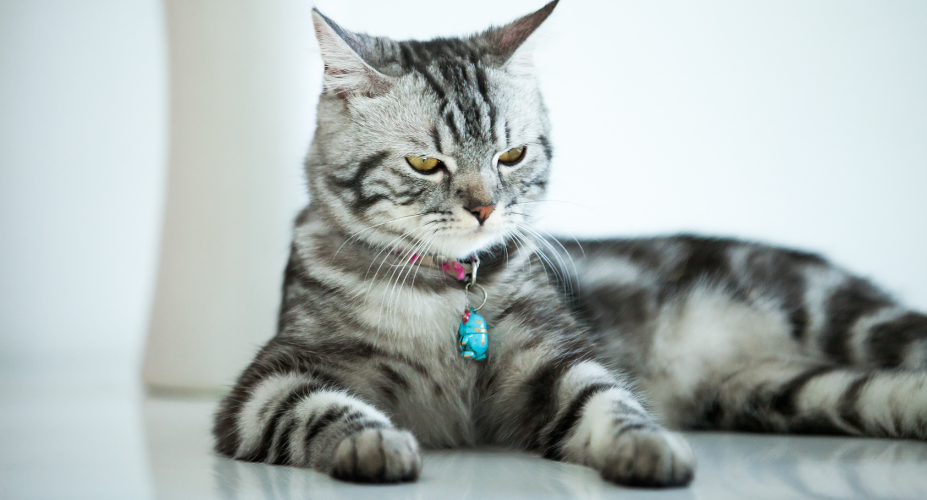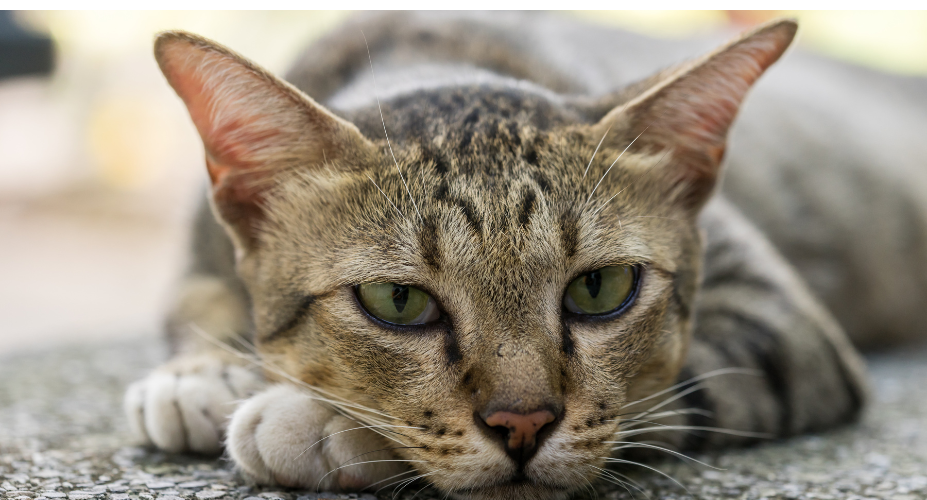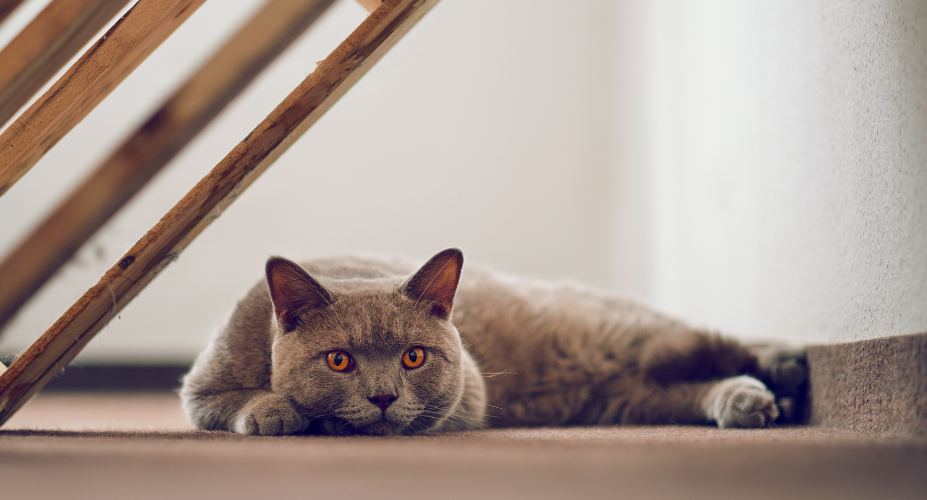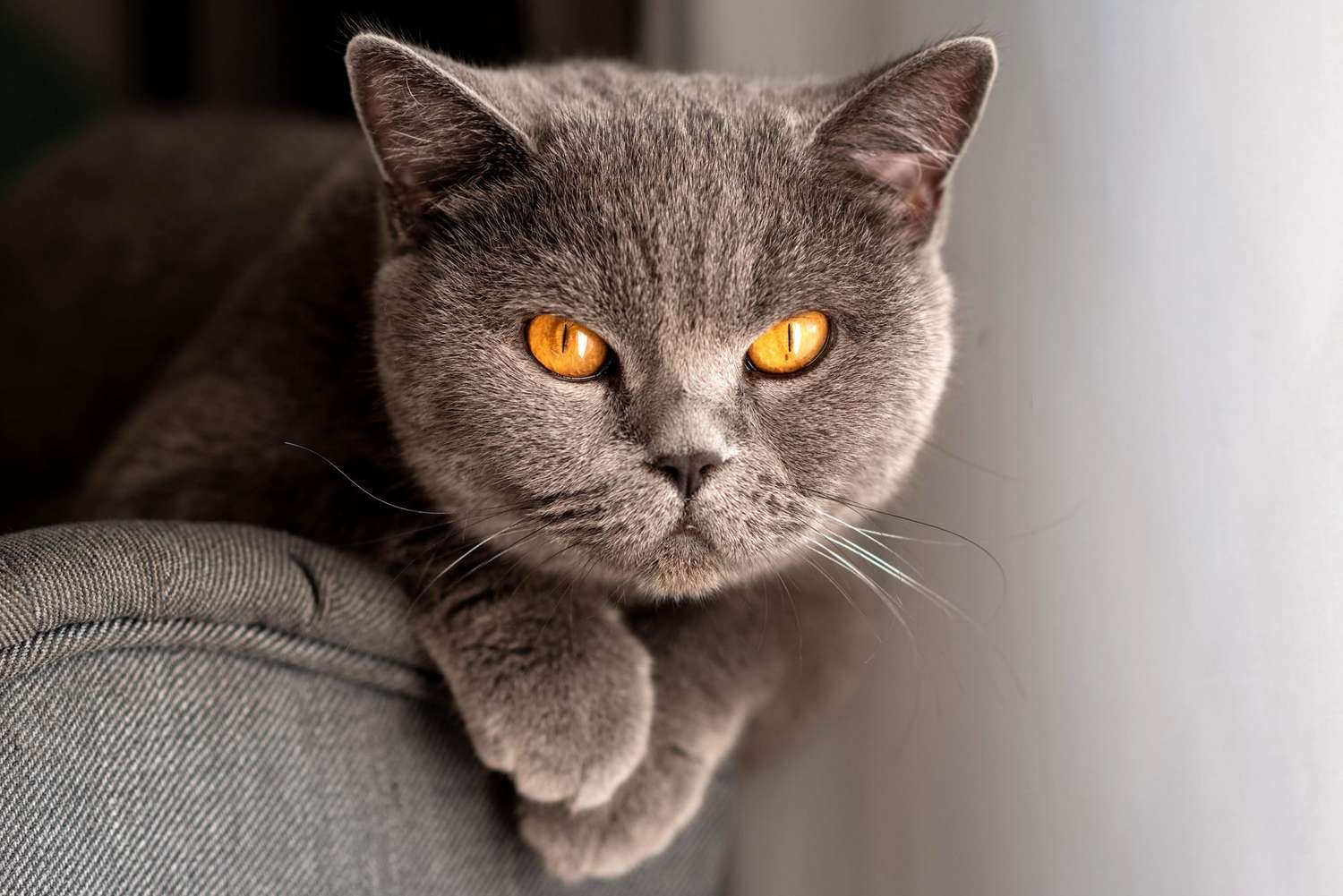American Shorthair vs British Shorthair: A Comprehensive Comparison of Two Beloved Cat Breeds
American Shorthair vs British Shorthair: A Comprehensive Comparison of Two Beloved Cat Breeds
When it comes to choosing a cat, the decision between an American Shorthair vs British Shorthair can be a delightful dilemma for cat lovers. Both breeds boast a rich heritage, charming personalities, and distinct physical characteristics that make them beloved by many. An American Shorthair, known for its athletic build and sociable nature, shares a common ancestry with a British Shorthair, which is celebrated for its plush coat and calm demeanor.
This article gives a comprehensive comparison of these two cherished cat breeds, exploring their histories, physical traits, temperaments, and care requirements, to help potential cat owners make an informed choice that aligns with their lifestyle and preferences. Whether you're drawn to the energetic American Shorthair or a British Shorthair, understanding the nuances of each breed is key to a harmonious human-feline relationship.
History and Origin
American Shorthair: A Journey from Europe to America

An American Shorthair (ASH) traces its lineage back to European cats brought to North America by early settlers. These cats were highly valued for their hunting prowess, helping to protect the settlers' food supplies from rodents.
The cat was initially recognized as the Domestic Shorthair but was renamed in 1966 to the American Shorthair to better reflect its all-American character and to distinguish it from other non-pedigreed domestic shorthair cats. The first recorded breeding of an American Shorthair took place around 1904, and the breed has since become known for its robust health, muscular build, and friendly disposition.
British Shorthair: From Roman Companions to British Icons
A British Shorthair's origins can be traced back to the first century AD, with the breed's ancestors being domestic cats brought to Britain by the Romans. These cats interbred with local European wildcats, resulting in a robust and thick-coated breed well-suited to the British climate.
The cat aced near extinction during the World Wars but was revived through crossbreeding with other shorthair cats, Persians, and Russian Blues. A British Shorthair was officially recognized in the late 19th century and has since become known for its calm demeanor and plush coat.
Both an American Shorthair and a British Shorthair have evolved from their working cat roots to become affectionate and adaptable companions, each with a distinct personality and appearance that has won the hearts of cat enthusiasts around the world.
Physical Characteristics
|
Trait |
American Shorthair |
British Shorthair |
|
Size |
Medium to large |
Medium to large |
|
Weight |
Males: 11-15 lbs (5-6.8 kg) |
Males: 9-18 lbs (4-8 kg) |
|
Body Type |
Muscular and well-built, with a broad chest and strong legs |
Stocky and robust, with a broad chest and thick legs |
|
Coat Type |
Short, thick, and dense; designed to be weather-resistant |
Dense, plush, and short; often described as having a "crisp" feel |
|
Coat Colors and Patterns |
Wide variety, including solid, tabby, calico, and more |
Wide variety, but blue (gray) is the most iconic color; also includes tabby, colorpoint, and more |
|
Head Shape |
Round with well-defined muzzle and prominent cheekbones |
Round and massive, with chubby cheeks and a rounded forehead |
|
Eyes |
Large and wide-set, can be of any color |
Large, round, and wide-set, often copper or gold in color |
|
Ears |
Medium size, slightly rounded at the tips |
Small to medium size, broad at the base and rounded at the tips |
Personality and Temperament
American Shorthair: The Sociable and Adaptable Companion

An American Shorthair is known for its easy-going and friendly nature. These cats are highly people-oriented and enjoy spending time with their families, engaging in activities or simply observing household routines. They are moderately affectionate, not overly needy for attention, and can entertain themselves with toys or a good catnap.
American Shorthairs are intelligent and may enjoy learning tricks or solving puzzles, adding to their interactive charm. They are well-suited for families, singles, and seniors, as they get along with children and other pets, thanks to their adaptable and good-natured disposition.
British Shorthair: The Loyal and Placid Feline
A British Shorthair is celebrated for its calm and placid temperament. These cats are affectionate and loyal, forming strong bonds with their family members. While they enjoy playtime, they are not as demanding of attention and are known to be independent, often content to follow their owners around or watch household activities.
British Shorthairs are not typically lap cats due to their thick fur, which can make close contact feel too warm, but they do like to stay nearby. They are also known to be good companions for other cats and less boisterous dogs, making them suitable for multi-pet households.
Shared Traits: Independence and Playfulness
Both breeds share a love for play, though they do not require constant attention and are capable of playing well by themselves. This makes them excellent companions for single people as well as families. Their independent streak allows them to be left alone without getting into trouble, which is ideal for owners who work during the day.
Health and Lifespan
When considering the health and lifespan of the American Shorthair as well as British Shorthair breeds, it's reassuring to know that both are generally robust and can enjoy long lives with proper care. Like all breeds, they have their susceptibilities to certain health issues.
American Shorthair: Vigorous and Long-Lived
An American Shorthair is celebrated for its impressive lifespan, often ranging from 15-20 years. This breed is generally healthy, thanks in part to its origins as a working cat, where only the fittest survived to breed.
Common health issues that may affect American Shorthairs include heart disease, particularly hypertrophic cardiomyopathy (HCM), as well as feline lower urinary tract diseases, renal failure, hyperthyroidism, and diabetes mellitus. Regular veterinary care as well as a healthy lifestyle can aid mitigate these risks and contribute to a long, healthy life for these cats.
British Shorthair: Hardy with Fewer Health Concerns

British Shorthairs are also known for their good health and typically live between 12 to 20 years. They are prone to certain health issues, such as hyperthyroidism, hypertrophic cardiomyopathy (HCM), and polycystic kidney disease (PKD). Despite these potential concerns, with regular veterinary check-ups and a caring home environment, British Shorthairs can enjoy a long and healthy life.
Commonalities and Preventative Care
Both cats benefit greatly from indoor living, which significantly reduces the risks associated with outdoor dangers and can extend their lifespan. Preventative care, including regular veterinary check-ups, vaccinations, and a balanced diet, plays a crucial role in the health and longevity of both American Shorthair and British Shorthair cats.
Care and Maintenance
American Shorthair
An American Shorthair is a medium-sized breed with a dense, short coat that lies close to the body. Despite their short fur, these cats have moderate grooming needs. Regular brushing helps remove loose hair as well as prevents matting, especially during shedding seasons. A soft-bristle brush or grooming mitt is recommended for this task.
Additionally, routine dental care is essential for maintaining their oral hygiene. Brush their teeth regularly using a cat-friendly toothpaste and toothbrush to prevent dental issues such as plaque buildup and gum disease.
In terms of exercise, American Shorthairs are moderately active and need regular physical activity to maintain their health. This breed's exercise needs are closely related to their innate hunting instincts. Regular physical activity also helps American Shorthairs maintain their ideal weight, which is crucial considering their predisposition to obesity. They enjoy interactive playtime and can be taught to fetch toys.
British Shorthair
British Shorthairs are relatively large, solid cats with a dense and plush coat. They require regular grooming, with brushing at least once a week to prevent matting and remove loose hair. Regular checks on earwax buildup and trimming of nails are also necessary. Dental hygiene is important for this breed's overall health, so regular tooth brushing and provision of dental treats or toys to help keep their teeth clean are recommended.
While British Shorthairs are generally not as active as some other breeds, they still need regular exercise. They are known to be excellent at entertaining themselves, often taking toys to play with alone. A few 5-minute play sessions throughout the day will be plenty of exercise for your British Shorthair. They are intelligent cats that need to be properly stimulated, although providing adequate spaces for rest and snoozing is equally important.
Suitability for Families

American Shorthair: The Versatile Family Pet
American Shorthairs are renowned for their adaptability and sociable nature, making them an ideal match for various household settings. Their friendly and easy-going temperament means they typically get along well with children, often displaying patience and a playful attitude. These cats are also known for their intelligence and can be a joy for kids who want to engage in interactive play, such as fetch or puzzle toys.
For households with other pets, an American Shorthair is a commendable choice. Their history as working cats has endowed them with a level-headed disposition, allowing them to coexist peacefully with other animals, including dogs, as long as proper introductions are made. Single owners will find the American Shorthair to be a loyal and affectionate companion that provides the right balance of independence and companionship.
British Shorthair:
The Gentle and Loyal Companion
British Shorthairs are equally well-suited to family life. Their calm and placid nature makes them a good fit for families with children. They are generally tolerant and less likely to scratch or bite, preferring to walk away if they feel overwhelmed.
This breed's laid-back attitude also makes them suitable for households with other pets, including both cats and dogs. They are not known to be territorial and will often form strong bonds with their animal housemates.
For single owners, the British Shorthair can be a wonderful pet. They are independent enough to be left alone during the day without getting into mischief but will eagerly greet their owner upon return. Their affectionate yet undemanding nature means they are content to simply be in the same room as their owner, making them a low-maintenance companion.
Conclusion
Both the American Shorthair and British Shorthair are beloved cat breeds, each offering unique qualities that make them cherished companions. An American Shorthair, with its athletic build and sociable nature, is a versatile pet that fits well into various household settings. They are known for their adaptability, intelligence, and playful demeanor, making them a joy to have around, whether in a bustling family home or a single-owner household. The British Shorthair, with its plush coat and calm demeanor, is a gentle and loyal companion.
They are known for their laid-back attitude, independence, and affectionate nature, making them a great fit for families, multi-pet households, or single owners seeking a low-maintenance pet.
While both breeds share similarities in terms of their robust health, moderate grooming needs, and balanced personalities, their differences lie in their activity levels and social tendencies. An American Shorthair is more active and sociable, while a British Shorthair is more laid-back and independent.
Choosing between these two breeds ultimately depends on your lifestyle and personal preferences. If you prefer a more active and sociable cat, the American Shorthair may be the better choice. If you are looking for a more laid-back and independent cat, the British Shorthair may be more suitable. Regardless of the breed you choose, both the American Shorthair and British Shorthair can bring joy, companionship, and a unique charm to your home.



.jpg)



